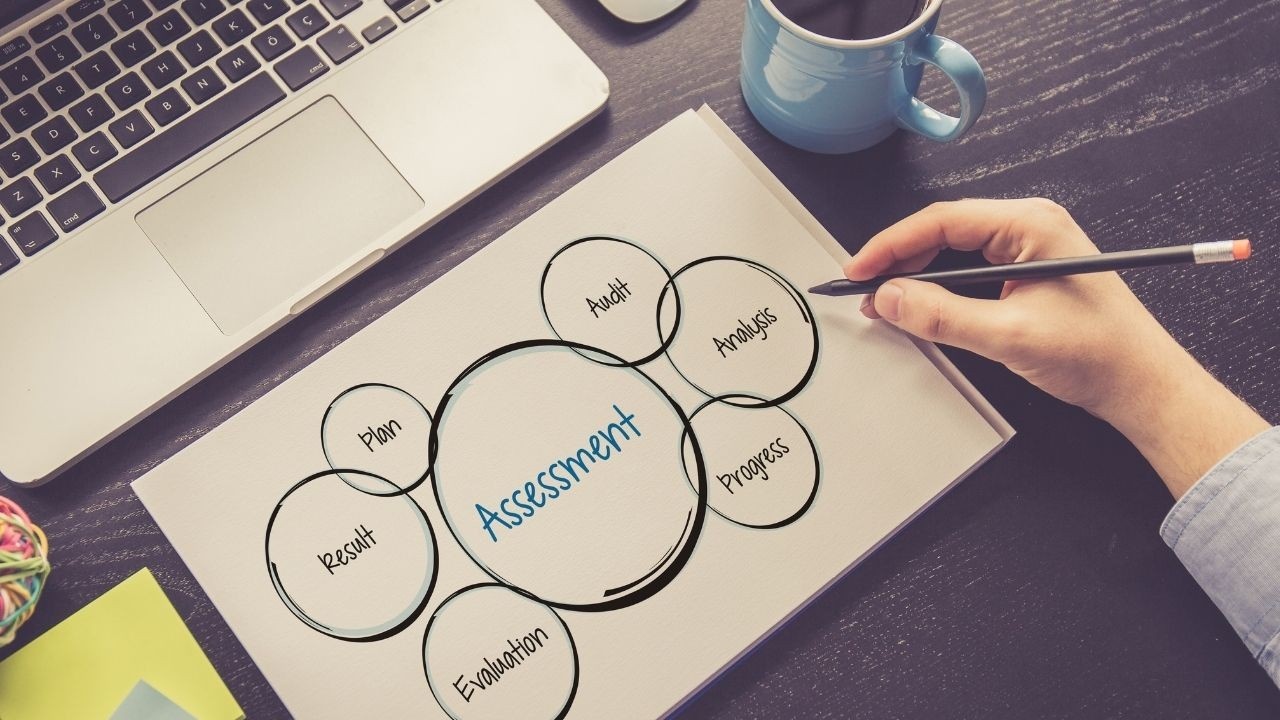Is This The Good Life? Assessing Your Current State Of Wellbeing

Table of Contents
Defining Your "Good Life": Understanding Your Values and Priorities
What does the good life mean to you? It's subjective! Defining your "good life" is a deeply personal journey, and understanding your core values and life priorities is crucial for determining your current state of wellbeing. This self-assessment is the foundation for creating a life filled with purpose and meaning. It's about aligning your actions with what truly matters to you.
-
Reflect on what truly matters to you: Consider various aspects of life, such as relationships (family, friends, romantic partners), career, creativity, spirituality, health, personal growth, financial security, and contributing to your community. What brings you joy and a sense of accomplishment? Write these down.
-
Consider what brings you joy and a sense of purpose: Think about activities, experiences, or relationships that consistently leave you feeling fulfilled and energized. What are you passionate about? What makes you feel alive? These are often strong indicators of your core values.
-
Identify your top 5 values and how they align with your current lifestyle: Once you've identified your key values, evaluate how well your current lifestyle reflects them. Are you living in accordance with your priorities? Where are there discrepancies? Identifying these misalignments is a crucial step towards improving your wellbeing.
-
Set realistic and meaningful goals aligned with your values: Once you have a clearer understanding of your values, set realistic, achievable goals that move you closer to living a life that truly reflects them. These goals should be meaningful to you, not dictated by external pressures or societal expectations.
Assessing Your Physical and Mental Health: Key Indicators of Wellbeing
Your physical and mental health are cornerstones of wellbeing. Neglecting either significantly impacts your overall life satisfaction and ability to thrive. This section examines key indicators and provides strategies for self-assessment, encouraging proactive steps towards better health and happiness.
-
Evaluate your sleep quality, diet, and exercise routine: Are you getting enough sleep? Is your diet nutritious and balanced? Do you engage in regular physical activity? These are fundamental aspects of physical health that directly affect your mood, energy levels, and overall wellbeing. Poor sleep, unhealthy eating, and lack of exercise can contribute to stress, anxiety, and decreased life satisfaction.
-
Reflect on your stress levels and coping mechanisms: How do you handle stress? Do you have healthy coping mechanisms? Chronic stress can severely impact mental and physical health, leading to burnout and decreased quality of life. Learning effective stress management techniques, such as mindfulness, meditation, or spending time in nature, is crucial for maintaining wellbeing.
-
Assess your mental health; are you experiencing symptoms of anxiety or depression?: Be honest with yourself. If you suspect you're struggling with your mental health, don’t hesitate to seek professional help from a therapist or counselor. Early intervention is key to managing mental health challenges and improving your overall wellbeing.
-
Incorporate mindfulness and self-care practices into your daily life: Prioritizing self-care is not selfish; it’s essential for maintaining wellbeing. This could include activities like yoga, meditation, spending time in nature, reading, pursuing hobbies, or simply taking time to relax and recharge.
Evaluating Your Social Connections and Relationships: The Social Element of Wellbeing
Strong social connections are vital for a good life. Humans are social creatures, and our relationships profoundly impact our happiness and overall wellbeing. This section emphasizes evaluating your relationships and social support network.
-
Reflect on the quality of your relationships with family, friends, and colleagues: Are your relationships supportive, fulfilling, and reciprocal? Or are they draining or unfulfilling? Identify the relationships that bring you joy and those that may be hindering your wellbeing.
-
Consider your sense of belonging and connection within your community: Do you feel a sense of belonging? Are you actively involved in your community? Strong community ties provide a sense of purpose, social support, and a feeling of connection.
-
Identify areas where you may need to nurture existing relationships or build new ones: Relationships require effort and nurturing. Are there relationships you need to invest more time and energy in? Are there new connections you'd like to make?
-
Evaluate your level of social support during challenging times: Do you have a strong support system to rely on during difficult periods? Having people you can trust and confide in is vital for resilience and coping with life's challenges.
Measuring Life Satisfaction and Purpose: Finding Meaning in Your Life
This section focuses on assessing your overall life satisfaction and sense of purpose – vital components of a fulfilling “good life”. It’s about finding meaning and fulfillment in your daily experiences and long-term goals.
-
Reflect on your accomplishments and how they align with your values: What have you achieved? Do your accomplishments reflect your values and priorities? This reflection helps gauge your progress toward living a life aligned with your deepest desires.
-
Consider your sense of purpose and contribution to something larger than yourself: Do you feel you're making a difference? Do you have a sense of purpose that extends beyond your personal needs? Contributing to something larger than yourself – whether it's volunteering, mentoring, or pursuing a meaningful career – can greatly enhance your sense of purpose and wellbeing.
-
Evaluate your level of fulfillment in different life areas (work, relationships, hobbies): Are you fulfilled in different aspects of your life? If not, identify areas needing improvement and explore ways to increase your satisfaction.
-
Identify areas where you feel a lack of purpose and explore ways to cultivate meaning: If you feel a lack of purpose, don't despair. Explore new interests, volunteer, connect with your community, or seek guidance from a life coach or mentor to help you find meaning and direction.
Conclusion
Assessing your wellbeing is a continuous process of self-reflection and adjustment. By honestly evaluating your physical and mental health, relationships, and sense of purpose, you gain valuable insights into your current state. Remember, the "good life" is unique to you. It's not a destination, but a journey of continuous growth and self-discovery.
Take the time to reflect on the questions posed in this article. Begin your journey towards a more fulfilling and meaningful “good life” by honestly assessing your current state of wellbeing. Start small; even incremental changes can lead to significant improvements in your overall happiness and life satisfaction. Regularly revisit this self-assessment to track your progress and continue building your good life.

Featured Posts
-
 Strategic Investment Guide Mapping The Countrys Emerging Business Hotspots
May 31, 2025
Strategic Investment Guide Mapping The Countrys Emerging Business Hotspots
May 31, 2025 -
 Arnarulunguaq Contribution A La Culture Inuit
May 31, 2025
Arnarulunguaq Contribution A La Culture Inuit
May 31, 2025 -
 Animal Pornography Charges Kelvedon Resident Pleads Guilty
May 31, 2025
Animal Pornography Charges Kelvedon Resident Pleads Guilty
May 31, 2025 -
 Carlos Alcaraz Defeats Davidovich Fokina Reaches Monte Carlo Masters Final
May 31, 2025
Carlos Alcaraz Defeats Davidovich Fokina Reaches Monte Carlo Masters Final
May 31, 2025 -
 Tigers Announce Doubleheader Details Following Friday Postponement
May 31, 2025
Tigers Announce Doubleheader Details Following Friday Postponement
May 31, 2025
